Podcast: Play in new window | Download (Duration: 29:47 — 20.6MB) | Embed
Subscribe: Apple Podcasts | Spotify | Amazon Music | Android | Pandora | iHeartRadio | JioSaavn | Podchaser | Gaana | Podcast Index | Email | TuneIn | Deezer | Anghami | RSS | More

SJC5 – Mystery of Believing – St. John of the Cross: Master of Contemplation with Fr. Donald Haggerty – Discerning Hearts Podcast
In this series Fr. Donald Haggerty and Kris McGregor discuss the depths of prayer as explored by St. John of the Cross, the Mystical Doctor of the Church. In this episode, they continue their conversation on that which leads to the experience of the Dark Nights often associated with St. John of the Cross
An excerpt from St. John of the Cross: Master of Contemplation
The urgent need of the soul in prayer must be, as such, to adopt a radical exercise of pure faith in its approach to God. At the point in the spiritual life when contemplative graces are beginning to stir, it is time to lift anchor, as it were, and plunge into deeper waters of faith: “Those who want to reach union with God should advance neither by understanding, nor by the support of their own experience, nor by feeling or imagination, but by belief in God’s being” (AMC 2.4.4). The last phrase “belief in God’s being” may seem ordinary enough. Is that not simply what faith is—to believe in God? But quickly we should recall the real demand in the deeper act of faith—a pure faith—that must take place in contemplative prayer. We must believe in God precisely as One who is beyond our measure or grasp or comprehension. We must adhere to him, search and seek for him, as infinite mystery and as a personal presence of love immediately engaged with us in the current hour of silent prayer. In short, we must enter into faith itself, into the mystery of believing, to approach the personal mystery of God. We believe in him in the prayer of contemplation as we surrender our being into him. We give way to him and allow him to abide in us: “For God’s being cannot be grasped by the intellect, appetite, imagination, or any other sense; nor can it be known in this life. The most that can be felt and tasted of God in this life is infinitely distant from God and the pure possession of him” (AMC 2.4.4).
Haggerty, Donald. Saint John of the Cross: Master of Contemplation (p. 76). Ignatius Press. Kindle Edition.
For more episodes in this series visit Fr. Haggerty’s Discerning Hearts page here
You find the book on which this series is based here


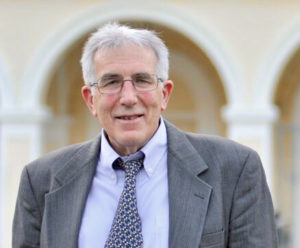
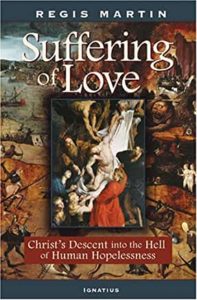
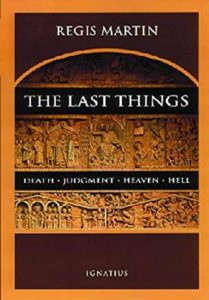





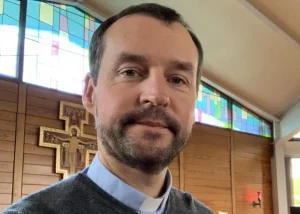
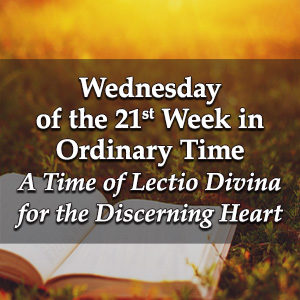 Wednesday of the Twenty-First Week in Ordinary Time – A Time of Lectio Divina for the Discerning Heart Podcast
Wednesday of the Twenty-First Week in Ordinary Time – A Time of Lectio Divina for the Discerning Heart Podcast




